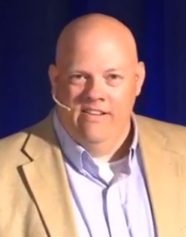A MESSAGE FROM THE REV. J.C. AUSTIN: Affirming Our Faith
As we continue with Summer Worship, I thought this might be a good time to revisit a part of the worship service that would be less familiar to folks who attend the Contemporary Service during the year, which is the Affirmation of Faith.
In general, contemporary worship services avoid unison responses  and prayers because of the inherent formality of such things, and contemporary services are intentionally less formal in structure and style. However, Reformed Christianity, of which Presbyterians are a part, has often used unison responses as a way of ensuring that the congregation is actively engaging in worship rather than simply observing the clergy.
and prayers because of the inherent formality of such things, and contemporary services are intentionally less formal in structure and style. However, Reformed Christianity, of which Presbyterians are a part, has often used unison responses as a way of ensuring that the congregation is actively engaging in worship rather than simply observing the clergy.
The Affirmation of Faith is a particularly important Reformed worship practice because of our emphasis on theology as a means of pursuing the knowledge and understanding of God and our faith in God. By making that affirmation in unison, it allows the congregation as a whole to respond to hearing God’s Word in the reading and preaching of the Scriptures; that’s why it always follows closely on the sermon.
The specific affirmations we use, then, are usually from the Book of Confessions, the theological statements of various church councils throughout the ages that together make up the official theological standards of the Presbyterian Church (USA). So, different selections from different confessions (which is a traditional term for theological statements made by church councils) are used that speak to the themes of the day’s Scripture lesson and sermon.
However, when we are celebrating Communion or Baptism, we generally narrow the choices. For Communion, we generally use the Nicene Creed as our Affirmation of Faith. That is because the Nicene Creed is the most universally accepted theological statement in worldwide Christianity, so using it with Communion is a way of holding up the church’s essential unity, especially when (ironically) the practice and theology of Communion is one of the most common points of disagreement in the Christian Church.
Second, when we are celebrating a Baptism, we always use the Apostles’ Creed. That document is very common in Western Christianity but not Eastern Orthodoxy, which is why the Nicene Creed is preferred for Communion. But the Apostles’ Creed is also specifically written for Baptism: in fact, it was originally responsive!
Rather than simply reciting it, a candidate for Baptism would say it responsively to answer questions. The officiant would say, “Do you believe in God?” and the candidate would respond, “I believe in God the Father Almighty, maker of heaven and earth.” Questions about Jesus Christ and the Holy Spirit would follow, and the rest of the Creed would be used to respond.
So, if the Affirmation is something that is new to you, or if you simply haven’t given it a lot of thought, take a moment in worship to consider what Affirmation is being used in that service and why, so that your own worship experience may be more meaningful and our common worship can be strengthened by both faith and understanding!
Grace and Peace,
J.C.
